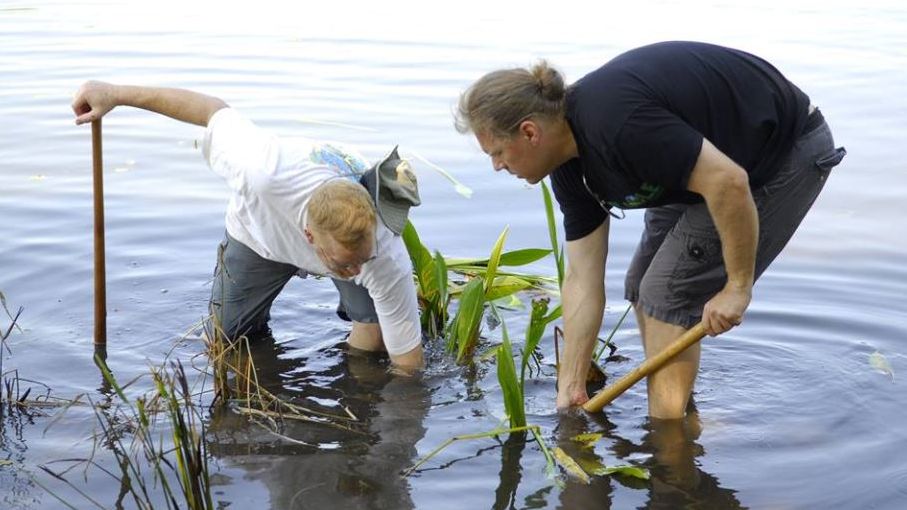Behold an elected office that sounds mundane, saturated, and certainly down to earth: supervisor of a local soil and water conservation district.
People pursue it for a reason.
What You Need To Know
- Florida has 58 soil and water districts, including those throughout Central Florida
- The districts promote responsible use of soil, water and natural resources
- Each district includes 5 volunteer board members elected to 4-year terms
- FULL COVERAGE: Decision 2020: Everything you need to know to be an informed voter
“There are two reasons, and I'm going to be a bit of a cynic here,” said Ed Young, a supervisor of the Seminole Soil and Water Conservation District. “One reason is to use it as a political stepping stone, which some people I have witness to. But others, they care about the future.”
Young serves as chair of the Seminole district, one of 58 such areas in Florida, including one for each county in Central Florida. The districts aim to trumpet responsible use and conservation of soil, water, and natural resources, according to the Florida Association of Conservation Districts.
Each soil and water district does that through an elected five-member board of supervisors who volunteer their time to educate, promote, partner, conserve, and engage.
But some districts do it with more verve than others.
The Seminole district’s Facebook page provides continual updates on the board’s news, meetings, and initiatives, including a Wednesday virtual meeting about its “Wild Seminole” trail cameras and photo contest. Its website lists its meeting minutes and agenda. The site also details its mission and educational programs, among other things.
“We're not environmentalists. We’re conservationists,” Young said. “There's a difference. Most hunters are conservationists. We have to understand managing our resources because once something's gone, it ain’t coming back.”
Meanwhile, the Orlando-based Orange Soil and Water Conservation District hasn’t posted on its Facebook page since April 2019. Its website offers no minutes, agendas or upcoming events.
In addition, the district in recent months has been the subject of reports that information on its website has fallen short of compliance and that supervisors unsuccessfully tried to oust a board member for lack of attendance at meetings.
University of Central Florida student Raquel Lozano said she requested from the district in April, and received in July, notes from meetings over the previous year.
She said she received notes from six meetings, two of which she said were quickly adjourned because of an insufficient number of board members in attendance.
To hear about the Orange district’s goals and initiatives, Spectrum News 13 made repeated unsuccessful attempts by phone and email to reach the district’s board chair, Michael Barber. Efforts to reach the four other board members listed on the district’s website failed as well.
An official at the Florida Department of Agriculture, which oversees the soil and water conservation districts, also didn’t return a call to discuss the Orange district’s activities — or lack of them.
Lozano, the UCF student, said she’s running for one of four vacant seats on the Orange board in an attempt to better connect the district to the people it serves.
Lozano, 23, a lifelong Orange County resident who’s majoring in political science and public administration, said her grandmother is a Mexican immigrant and her grandfather an Army veteran of Puerto Rican descent.
She said they adopted her as a child and “instilled into me that American dream, which is to make sure that we work together as a community.”
“I often find that people are disconnected from local government and from the resources that are available to them,” she said. “And I think oftentimes that is due to lack of communication or a lack of civic engagement with citizens.”
Regarding natural resources, the Seminole district’s Young emphasized the importance of communication and engagement. He pointed out that the U.S. government created the soil and water districts in response to the Dust Bowl disaster of the 1930s.
“We have a finite amount of water,” he said. “We have a finite amount of soil. And when we talk about soil, the most crucial soil is that three-quarters of an inch on top.”
Also, because of insufficient regulation on major developments and corporations, he said, “we have a drain on our water and on our resources.”
Young said he’s running unopposed for his seat in November, so he’ll get another four-year term.
When people ask him whether he’ll ever run for a higher office, he said he tells them: “I have four years ahead of me, and my job is not done on the soil and water board.”



